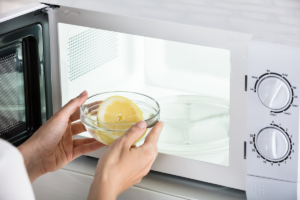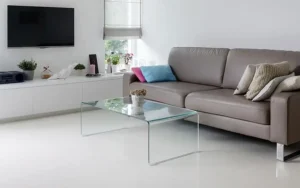If you’re like me, you love to cook. And if you love to cook, then you know that having a good cutting board is important. But what kind of cutting board should you get? Wood? Bamboo? Glass?
I’ve always been a fan of glass cutting boards. They’re sleek and stylish, and they make your kitchen look more modern. But I recently heard that glass cutting boards can actually be bad for your knives. Supposedly, they can dull
1.Why glass cutting boards are bad for knives
Most people think that glass cutting boards are bad for knives because they are too hard and will dull the blade. However, this is not the only reason why glass cutting boards are bad for knives. Glass is also a very brittle material, which means that it can easily chip or break if it is hit too hard. If you use a glass cutting board, there is a good chance that you will end up chipping or breaking your knife blade.
2.How glass cutting boards can damage knives
Glass cutting boards can damage your knives in a few ways. First, the glass is harder than the steel in your knife, so it can dull the blade. Additionally, if you drop your knife on a glass cutting board, it is more likely to chip or break than if you drop it on a wood or plastic board.
3.The dangers of using glass cutting boards
When it comes to glass cutting boards, there are two dangers that you need to be aware of. The first is that they can break, and when they do, they can break into sharp pieces. If you’re not careful, you could cut yourself on a broken glass cutting board.
The second danger is that glass cutting boards can damage your knives. Over time, the glass will dull your knives and make them less effective. If you use your knives on a glass cutting board often, you’ll need to sharpen them more frequently.
4.Why you should avoid using glass cutting boards
While it’s true that glass cutting boards can be very sleek and elegant, there are actually a few reasons why you should avoid using them.
For one, glass is a much harder material than wood, which means that it can actually end up dulling your knives over time.
Additionally, glass cutting boards can be extremely slippery, which makes them more difficult to use and increases the chances of you cutting yourself.
Finally, glass is also a very fragile material, which means that it’s more likely to break if it’s dropped or knocked over.
5.How to properly care for your knives
To get the longest life and best performance from your knives, it is important to care for them properly. Here are some basic tips:
-Wash your knives by hand with warm, soapy water and a soft sponge or cloth. Do not put them in the dishwasher!
-Dry your knives immediately after washing to prevent water spots.
-Never place your knives in a sink full of soapy water or in a dish rack to dry. This can damage the blade and handle.
-When storing your knives, choose a block, magnetic strip or sheath designed specifically for holding knives. This will protect the blades and prevent accidental cuts.
-Avoid placing your knives in drawer where they can become jumbled among other utensils.
6.How to avoid damaging your knives
If you’re using a glass cutting board, there are a few things you can do to avoid damaging your knives. First, always use a cutting board mat or pad underneath your board to protect it from scratches. Second, avoid using excessive force when cutting; let the weight of the knife do the work. Finally, don’t slide your knives across the surface of the board; lift them up after each cut.
7.The best cutting boards for your knives
If you’re looking for the best cutting board to keep your knives in good shape, you have a few different options. You can choose a wooden cutting board, a plastic cutting board, or a glass cutting board.
Each type of cutting board has its own advantages and disadvantages. Woodencutting boards are durable and easy on knives, but they can be expensive. Plasticcutting boards are cheaper than wooden boards, but they’re not as durable and they can damage knives over time. Glass cutting boards are the most expensive option, but they’re also the most durable and easy on knives.
So, which type of cutting board is the best for your knives? That depends on your needs and preferences. If you’re looking for a durable cutting board that will last for years, a glass cutting board is a good choice. If you’re looking for a cheaper option that is still easy on your knives, a plastic cutting board is a good choice. And if you’re looking for an affordable option that is still durable and easy on your knives, a wooden cutting board is a good choice.
8.How to choose the right cutting board for your knives
When it comes to cutting boards, there are four main types: wood, bamboo, plastic, and composite. And while there are definitely proscons to each type (and subtype), the best cutting board for your knives is ultimately the one that you’re going to be happiest using.
Here’s a quick rundown of each type of cutting board and what you should consider before making your purchase:
Wood Cutting Boards:
The Pros: Wood is a gentler material on your knives, which means it will help prolong the sharpness of your blades. Wood also has natural antibacterial properties and is less likely to dull your knives than other materials.
The Cons: Wood is more absorbent than other materials, so it can be tougher to keep clean (especially if you’re dealing with raw meat). Wooden cutting boards can also crack and warp over time if they’re not properly cared for.
Bamboo Cutting Boards:
The Pros: Bamboo is a sustainable material that’s become increasingly popular in recent years. It’s also gentle on knives and won’t dull your blades as quickly as some other materials. Bamboo is also naturally antibacterial and resistant to mold and mildew.
The Cons: Bamboo can be tough to keep clean, especially if you’re dealing with raw meat. And like wood, bamboo boards can crack and warp over time if they’re not properly cared for.
Plastic Cutting Boards:
The Pros: Plastic is one of the most affordable options on the market and it’s easy to find in a variety of colors and sizes. Plastic is also lightweight and dishwasher-safe, which makes it easy to clean (especially if you’re dealing with raw meat).
The Cons: Plastic can be tough on your knives, which means it will shorten their lifespan. plastic boards are also more likely to harbor bacteria than other materials (although this risk can be minimized by washing them in the dishwasher after each use).
Composite Cutting Boards:
The Pros: Composite boards are made from a mixture of materials (usually wood fiber and resin), which makes them more durable than other options on the market. Composite boards are also gentle on knives and won’t dull your blades as quickly as some other materials.
The Cons: Composite boards can be expensive, and they’re not always dishwasher-safe (which means they can be tough to clean).












